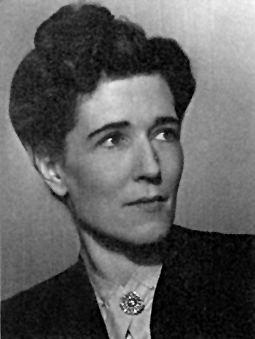
Georgette Heyer was an English novelist and short-story writer, in both the Regency romance and detective fiction genres. Her writing career began in 1921, when she turned a story conceived for her ailing younger brother into the novel The Black Moth. In 1925 Heyer married George Ronald Rougier, a mining engineer. The couple spent several years living in Tanganyika Territory and Macedonia before returning to England in 1929. After her novel These Old Shades became popular despite its release during the General Strike, Heyer determined that publicity was not necessary for good sales. For the rest of her life she refused to grant interviews, telling a friend: "My private life concerns no one but myself and my family."
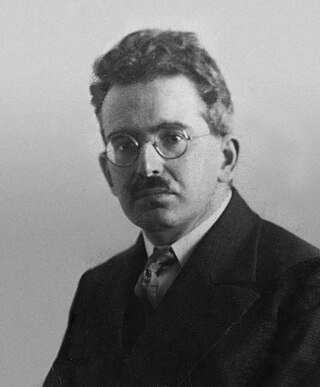
Walter Bendix Schönflies Benjamin was a German Jewish philosopher, cultural critic, media theorist, and essayist. An eclectic thinker who combined elements of German idealism, Romanticism, Western Marxism, Jewish mysticism, and Neo-Kantianism, Benjamin made enduring and influential contributions to aesthetic theory, literary criticism, and historical materialism. He was associated with the Frankfurt School, and also maintained formative friendships with thinkers such as playwright Bertolt Brecht and Kabbalah scholar Gershom Scholem. He was related to German political theorist and philosopher Hannah Arendt through her first marriage to Benjamin's cousin Günther Anders though the friendship between Arendt and Benjamin outlasted her marriage to Anders. Both Arendt and Anders were students of Martin Heidegger, whom Benjamin considered a nemesis.
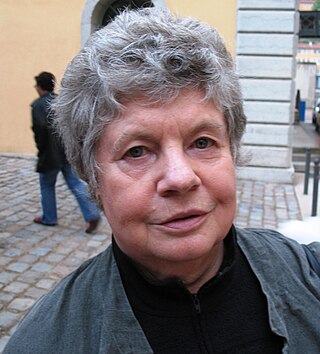
Dame Antonia Susan Duffy, known professionally by her former married name, A. S. Byatt, was an English critic, novelist, poet and short story writer. Her books have been translated into more than thirty languages.
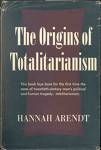
The Origins of Totalitarianism, published in 1951, was Hannah Arendt's first major work, wherein she describes and analyzes Nazism and Stalinism as the major totalitarian political movements of the first half of the 20th century.
Rosier, according to the occultist Gustav Davidson in A Dictionary Of Angels (1967) is "a former lesser-rank angel of the order of dominations.", the cited source being Sebastien Michaelis' Admirable History of the Possession and Conversion of a Penitent Woman (1613).
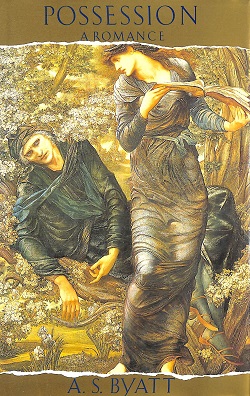
Possession: A Romance is a 1990 best-selling novel by English writer A. S. Byatt that won the 1990 Booker Prize for Fiction. The novel explores the postmodern concerns of similar novels, which are often categorised as historiographic metafiction, a genre that blends approaches from both historical fiction and metafiction.
Canongate Books is an independent publishing firm based in Edinburgh, Scotland.
Dedalus Books is an independent publishing company based in Cambridgeshire, England. Publisher Eric Lane has said, "We like the bizarre, the grotesque, the surreal and the clever, preferably in the same book. We call this kind of book, distorted reality. For instance David Madsen’s Memoirs of a Gnostic Dwarf, Sylvie Germain’s The Book of Night and Vladimir Sharov’s Before and During. Three perfect examples of what we are looking for." Prize-winning Dedalus writers have included novelist Andrew Crumey and translator Margaret Jull Costa.

Andrew Crumey is a novelist and former literary editor of the Edinburgh newspaper Scotland on Sunday. His works of literary fiction incorporate elements of speculative fiction, historical fiction, philosophical fiction and Menippean satire. Brian Stableford has called them "philosophical fantasies". The Spanish newspaper El Mundo called Crumey "one of the most interesting and original European authors of recent years."
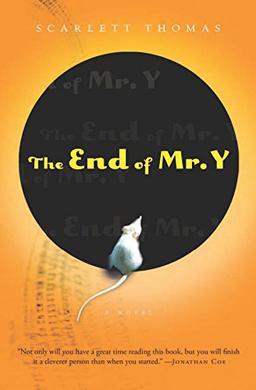
The End of Mr. Y is a novel by British author Scarlett Thomas. The book tells the story of Ariel Manto, a PhD student who has been researching the 19th century writer Thomas Lumas. She finds an extremely rare copy of Lumas' novel The End of Mr. Y in a second-hand bookshop. The book is rumoured to be cursed - everyone who has read it has died not long afterwards.

Sputnik Caledonia (2008) is a novel by Andrew Crumey, for which he won the Northern Rock Foundation Writer’s Award, the UK's largest literary prize at the time.

Mobius Dick (2004) is a novel by Andrew Crumey. It features an alternate world in which Nazi Germany has invaded Great Britain and Erwin Schrödinger failed to find the wave equation that bears his name. This world becomes connected to our world due to experiments with quantum computers. The title parodies Moby-Dick.
Quantum fiction is a genre of speculative fiction that reflects modern experience of the material world and reality as influenced by quantum theory and new principles in quantum physics. It is characterized by the use of an element in quantum mechanics as a storytelling device. The genre is not necessarily science-themed, and blurs the line separating science fiction and fantasy into a broad scope of mainstream literature that transcends the mechanical model of science and involves the fantasy of human perception or imagination as realistic components affecting the everyday physical world.

The Peppered Moth is a 2000 novel by English writer Margaret Drabble; it is her fourteenth published novel. The novel follows the fictional experiences of three generations of women within one family, and contains several elements that are loosely based on Drabble's own biographical experience.

One Way Street is an anthology of brief meditations by Walter Benjamin collected and published as a book in 1928. The reflections composing its cycle were mostly written coterminously with the drafting phase of his doctoral thesis The Origin of German Tragic Drama, during his personally transformative though ultimately failed romance with Asja Lācis. Many of the pieces that were published individually prior to their appearance as a collection first ran as feuilleton in newspapers—a critical, artistic, sometimes purely humorous or bizarre space-filling feature of newspaper formats in Europe at the time.

Music, in a Foreign Language is the first novel by physicist Andrew Crumey, published by Dedalus Books in 1994. It won the Saltire Society First Book Award for that year, in a ceremony broadcast on STV.
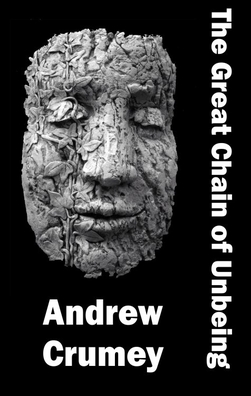
The Great Chain of Unbeing is the eighth fiction book by Andrew Crumey, published by Dedalus Books in 2018. It was shortlisted for Scotland's National Book Awards and nominated for the British Science Fiction Awards. The title alludes to the great chain of being and the book consists of stories that range widely in theme and style but are subtly linked. The book has been variously interpreted as a short story collection or novel.

D'Alembert's Principle is a novel by Andrew Crumey, and the second in a sequence of three set wholly or partly in the eighteenth century. It is in three sections, subtitled "Memory, Reason and Imagination". The U.S. edition was subtitled "A novel in three panels". It has been translated into French, German, Dutch, Spanish, Greek, Russian, Italian, Turkish and Romanian. It prompted El Mundo (Spain) to say "Crumey is one of the most interesting and original European authors of recent years."

Mr Mee is a novel by Andrew Crumey, his third set wholly or partly in the eighteenth century. It has three alternating story-lines: one featuring a pair of 18th-century French copyists, and two with modern protagonists - elderly Scottish book collector Mr Mee and university lecturer Dr Petrie. The lecturer's strand is serious in tone. Dissatisfied with his marriage and suffering ill health, he muses on French literature and becomes infatuated with a student. The other two strands are comic. The copyists become guardians of an esoteric encyclopaedia, and Mr Mee wishes to find it. He turns to the World Wide Web and discovers pornography and drugs, with farcical consequences.
Beethoven's Assassins is a novel by Andrew Crumey, nominated by publisher Dedalus Books for the 2023 Booker Prize. It imagines Beethoven being commissioned by a masonic lodge to write an opera about the Order of Assassins, called "The Assassins, or Everything is Allowed". The opera's subtitle comes from "Nothing is true and everything is allowed", which was the Assassins' secret doctrine according to Beethoven's acquaintance Joseph von Hammer-Purgstall.















